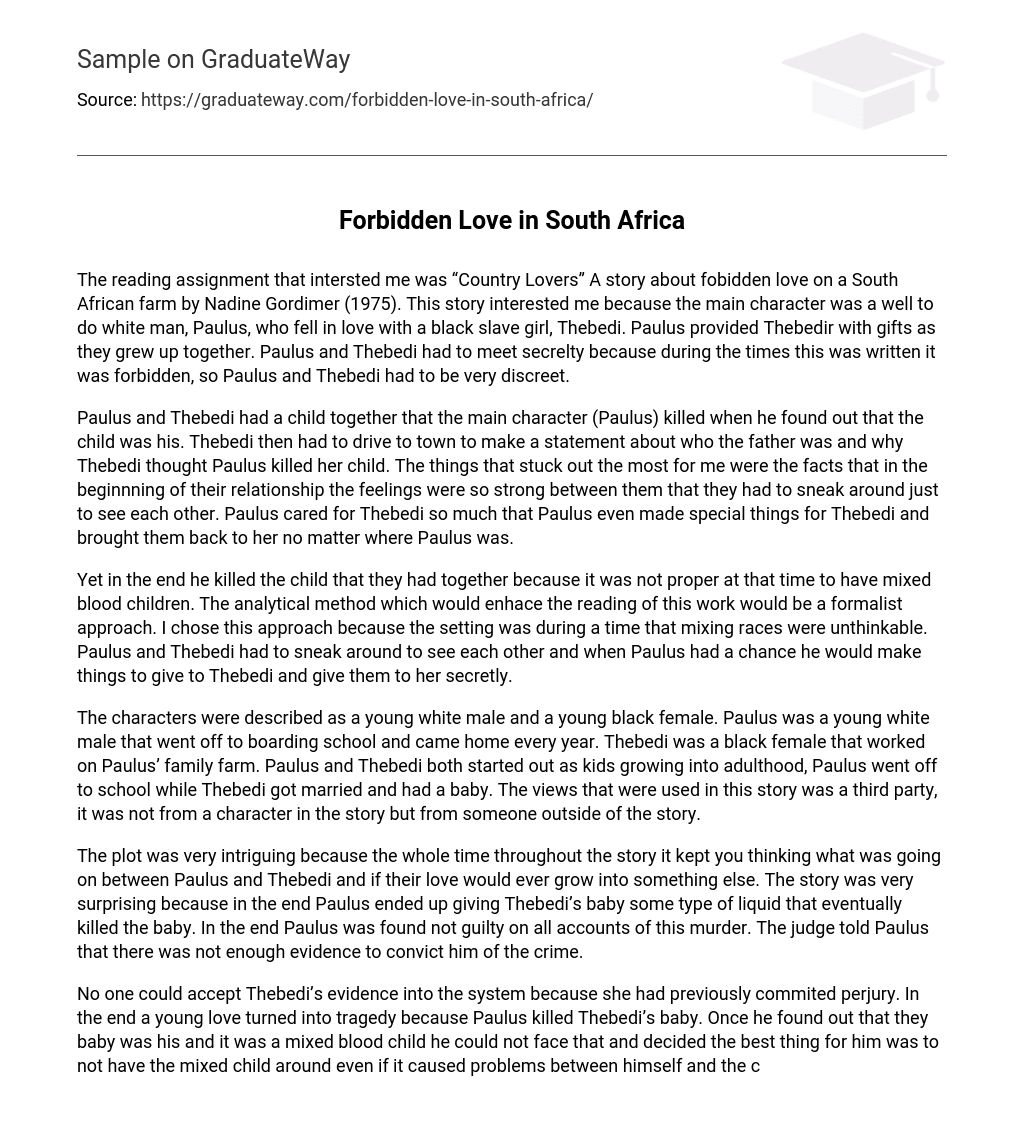The text that captured my attention was “Country Lovers,” a tale set on a South African farm depicting forbidden love, written by Nadine Gordimer in 1975. What intrigued me about this story was the relationship between the affluent white protagonist, Paulus, and the black enslaved character, Thebedi. Growing up together, Paulus bestowed upon Thebedir various presents. However, due to the prevailing societal norms at that time, their meetings had to be clandestine and they had to exercise extreme caution.
Paulus and Thebedi were involved in a secret relationship, which eventually led to them having a child together. Tragically, Paulus ended up killing their child upon discovering that he was the father. As a result, Thebedi had to travel to town to provide a statement about the paternity of the child and her belief that Paulus was responsible for the death. The intensity of their early relationship is noteworthy, as they had to discreetly meet each other. Paulus demonstrated his deep affection for Thebedi by creating special gifts for her and delivering them regardless of his location.
At the time, it was considered inappropriate to have mixed race children. As a result, Paulus ended up killing the child that he and Thebedi had together. To enhance the understanding of this story, a formalist approach would be suitable. This approach is chosen due to the fact that the setting is during a time when interracial relationships were considered taboo. Paulus and Thebedi had to meet in secret, and whenever possible, Paulus would secretly give gifts to Thebedi.
The characters in the story were a young white male and a young black female. The young white male, named Paulus, would leave for boarding school and return home annually. The young black female, known as Thebedi, worked on Paulus’ family farm. Both Paulus and Thebedi transitioned from childhood to adulthood – Paulus through school and Thebedi through marriage and motherhood. The narrative perspective utilized in this story was that of a third party observer, distinct from any of the characters involved.
The plot of the story was captivating, with an ongoing sense of intrigue surrounding the relationship between Paulus and Thebedi, leaving readers curious about the potential development of their love. What made the story surprising was the unexpected twist at the end – Paulus ultimately gave Thebedi’s baby a harmful substance which led to its death. In a shocking turn of events, Paulus was acquitted of all charges related to this act, as the judge ruled that there wasn’t sufficient evidence for his conviction.
No one could admit Thebedi’s testimony due to her past perjury. Ultimately, a tragic outcome unfolded as Paulus murdered Thebedi’s infant. Upon discovering that the child was his and of mixed heritage, he could not confront this reality and determined that eliminating the mixed race child was in his best interest, even if it strained his relationship with the child’s mother. The underlying message of the narrative suggests that in earlier times, any interaction between a white male and a black female was deemed unfavorable.





